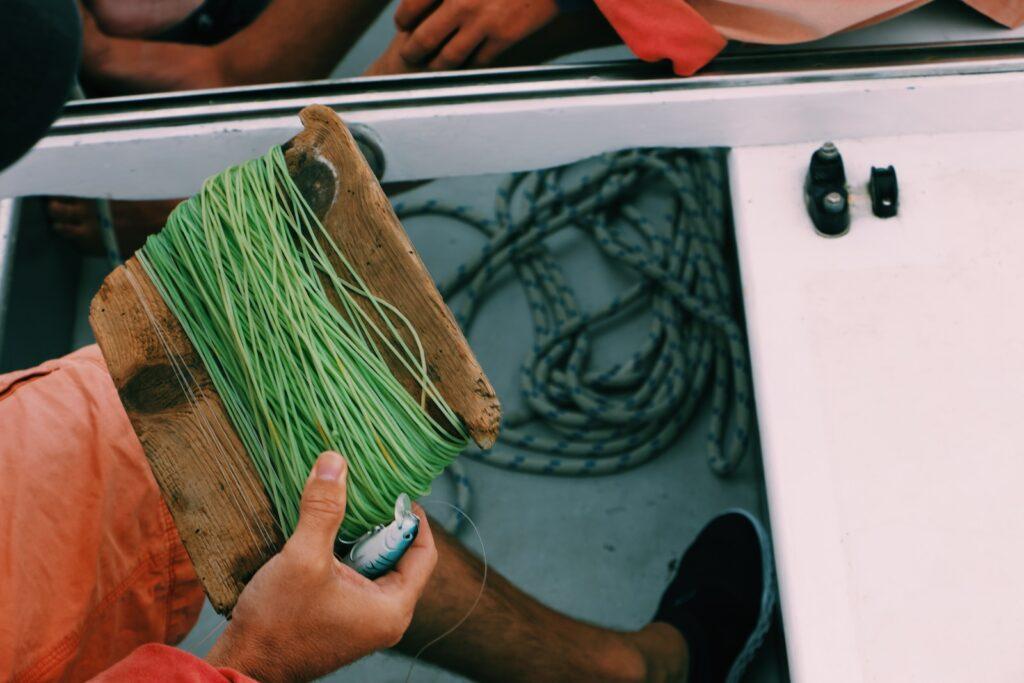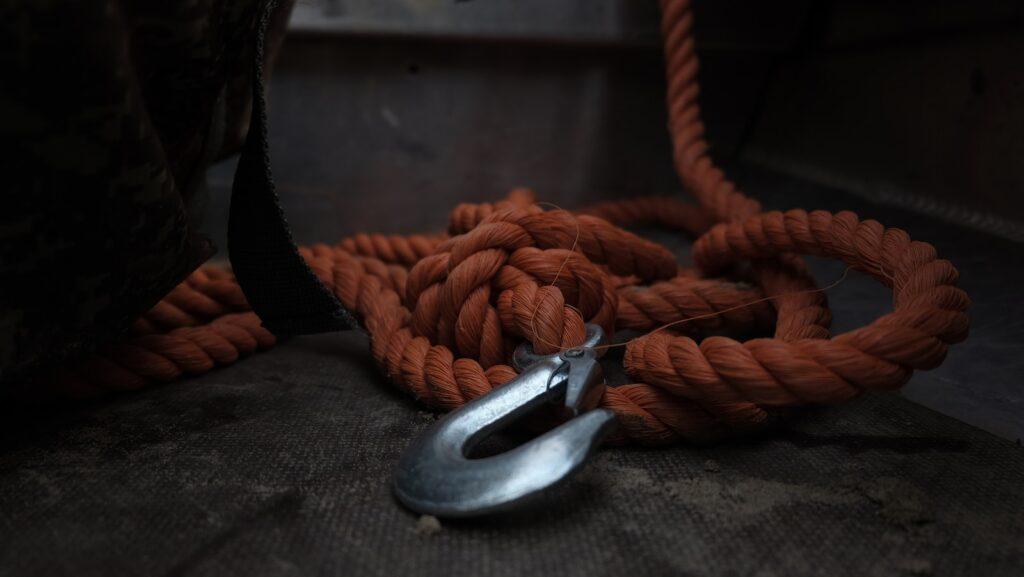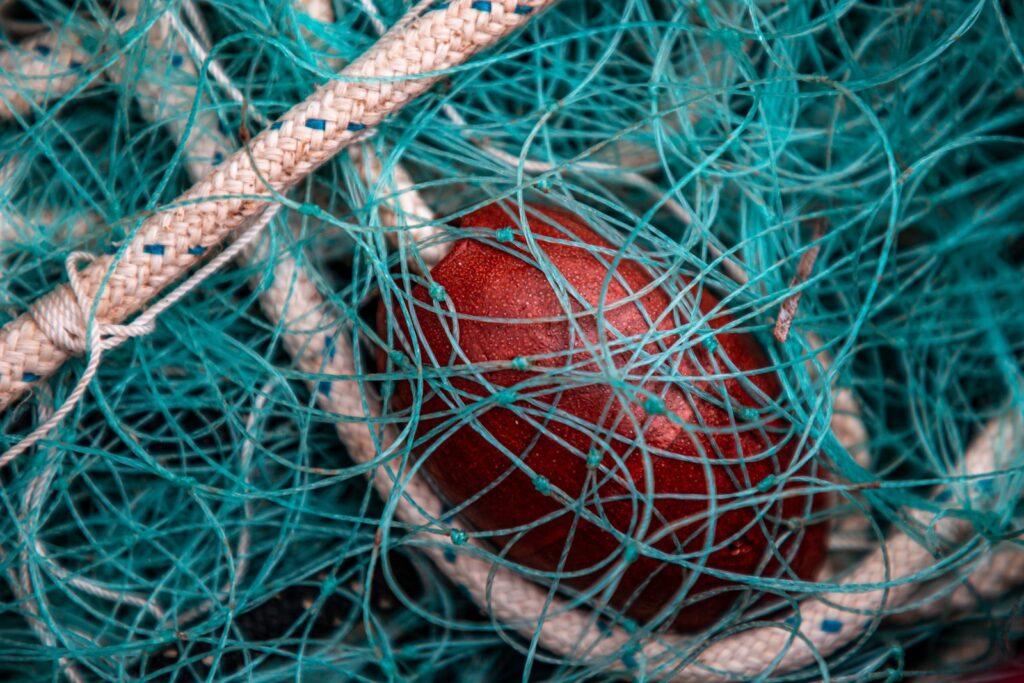Best Boat Hooks
One of the essential pieces of gear you should have on board is a boat hook. This versatile tool can help you secure your boat to a dock, push off from a dock or other vessel, and perform a variety of other tasks. In this article, we’ll provide an overview of boat hooks and guide you through the process of selecting the best one for your needs.
Best Boat Hooks
The best boat hooks are made of corrosion-resistant materials like stainless steel or aluminum, and they should have an ergonomic handle design for comfortable use. Look for a boat hook with a strong, durable shaft and a wide, flat head that can easily grab onto dock lines and mooring ropes. For added convenience, you may want to consider a telescoping boat hook, which extends to help you reach further.
- Star Brite Boat Hook — This one is kind of a big deal in the boat hook world. It’s durable, it extends to give you a longer reach, and the end can fit various accessories. Plus, it has a soft tip that won’t scratch your boat.
- WindRider Telescoping Boat Hook — These guys really know their stuff. This hook is made of anodized aluminum, so it’s both lightweight and robust. Bonus: it floats, just in case you drop it overboard.
- SeaSense Telescopic Boat Hook — This beauty has a telescopic design for easy storage, and it comes with a comfortable grip. Oh, and did I mention it’s tough as nails?
- Evercoat Sea Dog 491012–1 Telescoping Boat Hook — Sturdy and versatile with a two-section handle. This guy doesn’t mess around when it comes to durability.
- Camco 41901 Floating Telescoping Boat Hook — This one has a nifty feature: it floats! So even if you accidentally drop it in the water, it’ll be bobbing around waiting for you to pick it up.
Consider the size and weight of the head, as well as the overall length. A larger head with a wide surface area will make it easier to grab onto dock lines and mooring ropes, while a heavier head will make it easier to push away from the dock. It’s also important to buy a boat hook with a strong, durable shaft that won’t bend or break under the strain of pushing off from a dock.

You may want to consider a boat hook with a non-slip handle for added grip and comfort. If you have a larger boat, look for a boat hook that has an extendable shaft, as this makes it easier to reach further away from the boat.
What Is a Boat Hook and How to Use It
A boat hook is a pole with a hook on one end that is used to perform a variety of tasks on boats. It can be used to secure a boat to a dock, push off from a dock or other vessel, and reach objects that are out of reach. Boat hooks are typically made of metal or fiberglass and range in length from 2 to 12 feet.
It typically has a long handle with a curved hook at one end and a flat blade at the other. The hook can be used to tie up to a dock or boat, while the blade can be used to push the boat away from the dock.
A boat hook is also often used to help pull a rope or line from the water and onto the boat. This can be useful when raising a sail or retrieving a tow line. In addition, the hook can be used to reach items that have fallen in the water, such as a mooring buoy or an anchor. The handle is usually long enough to reach items that are out of reach from the boat.
A boat hook should be long enough to reach the furthest point on the boat that you need to access. Generally, a boat hook should be between 4 — 6 feet long. It’s important to remember that the length of a boat hook also depends on the size of your boat. For smaller boats, a shorter boat hook of around 4 feet may be more suitable while larger boats may require a longer boat hook of up to 6 feet. If you are unsure of the best length for your boat, it’s recommended to speak to a professional boat specialist to find the right length for your needs.
Types of Boat Hooks
Boat hooks are essential tools for boaters and come in a variety of shapes and sizes. The most common type of boat hook is the telescoping boat hook, which typically extends from 4 to 8 feet and can be used to reach items that are out of reach.
- Telescoping Boat Hooks: They are the transformers of the boat hook world. They can extend and retract, giving you a lot more flexibility in terms of reach and storage. They’re fantastic for larger boats or if you just want to have a bit more control over your hooking.
- Fixed-Length Boat Hooks: These hooks are your steady, reliable pals. They won’t extend or retract, but they’re often sturdier because of it. These are great if you know exactly how long you need your hook to be and want something solid.
- Multipurpose Boat Hooks: They are like the Swiss army knives of the boat hook world. They can come with interchangeable ends like brushes, mops, or fishing nets. It’s a boat hook and a utility tool, all in one.
- Floating Boat Hooks: Ever dropped your boat hook in the water and watched it sink? Yeah, not fun. Floating boat hooks solve that problem. They’re made of lightweight, buoyant materials, so if you drop them, they’ll bob right back up to the surface.
- Heavy-Duty Boat Hooks: These hooks are built to last and handle the tough stuff. They’re made from strong materials like aluminum or reinforced plastic. These are great for tasks that require a bit of elbow grease.
Other types of boat hooks include fixed-length boat hooks, which are typically made of metal and are used to push off docks, and boathook poles, which are typically made of wood and are used to grab items from the water. All boat hooks should be kept in a secure, dry area when not in use.
Folding Boat Hooks
Folding boat hooks are designed for convenience and portability. They feature a collapsible design that allows you to easily store them in a small space. Folding boat hooks are typically made of aluminum and range in length from 2 to 6 feet.
Telescoping Boat Hooks
Telescoping boat hooks feature an extendable design that allows you to adjust the length of the pole for better reach. They are typically made of fiberglass and range in length from 4 to 12 feet.
Floating Boat Hooks
Floating boat hooks are designed to float in the water if dropped. They are typically made of foam or plastic and range in length from 2 to 8 feet.
Features to Consider When Buying a Boat Hook

When purchasing a boat hook, there are several features to consider. The length of the boat hook is important, as it should be long enough to reach the desired areas of the boat, but not too long as to be unwieldy. The material of the boat hook should be taken into account, as metal hooks can be heavy and prone to rust, while plastic hooks are lighter and more durable.
- Material: Aluminum? Fiberglass? Different materials offer different perks. Aluminum is super tough, while fiberglass is lighter and doesn’t corrode. Make sure your hook’s material matches your needs and the conditions it’ll face.
- Length and Telescoping Feature: How long do you need your boat hook to be? Do you want the flexibility to adjust its length? If you’re going to be reaching out far, you might want a longer, telescoping hook. But if you’ll use it in closer quarters, a shorter, fixed-length one might be better.
- Hook Design: Not all hooks are created equal. Some are made for pushing, others for pulling, and some can do both. Think about what you’ll be using your hook for. A multipurpose design might be your best bet if you’ll use it for a variety of tasks.
- Floatability: Trust me on this one; you don’t want to be fumbling around in the water for a sunken boat hook. A floating design can save you a lot of trouble (and a few choice words).
- Grip: A good grip can make all the difference when you’re trying to maneuver a boat hook. Look for an ergonomic, non-slip grip to make handling your hook easier and more comfortable.
- Durability: You don’t want a hook that’s going to fall apart at the first sign of trouble. Look for sturdy construction and durable materials that can stand up to the rigors of boating.
Shape of the hook is important, as some may have curved hooks that are better suited for mooring lines, while others may have flat hooks that are better suited for retrieving objects from the water. The grip of the boat hook should be comfortable to hold and provide a secure grip in wet conditions.
Length
The length of the boat hook is an important factor to consider when making your selection. You’ll want to choose a boat hook that is long enough to reach objects that are out of reach, but not so long that it is unwieldy or difficult to handle.
Weight
The weight of the boat hook is another important factor to consider. You’ll want to choose a boat hook that is lightweight enough to handle easily, but not so lightweight that it feels flimsy or unstable.
Material
The material of the boat hook is also an important factor to consider. Metal boat hooks are typically sturdier and more durable than fiberglass or plastic boat hooks, but they are also heavier and more expensive.
Grip
The grip of the boat hook is an important factor to consider, as it will determine how comfortable and secure the boat hook feels in your hand. Look for a boat hook with a handle that offers good grip and doesn’t slip when wet.
How to Use a Boat Hook
Using a boat hook is fairly simple, but it is important to use it safely and correctly. The first step is to make sure the boat hook is securely attached to the boat. This can be done by inserting the pole into a holder, or by tying them to a rail or cleat on the boat. Once the boat hook is in place, the next step is to position the boat hook in the water. This can be done by extending the boat hook from the boat and using it to push or pull the boat, or by using it to retrieve items from the water, such as a mooring line.
Securing Your Boat to a Dock
To secure your boat to a dock, attach the hook of the boat hook to the dock cleat. Push the handle of the boat hook away from the dock to secure the line.
Pushing Off from a Dock or Other Boat
To push off from a dock or other boat, extend the pole of the boat hook and place the hook on the dock or boat. Push the handle of the boat hook away from the dock or boat to create distance.
Reaching Objects That Are Out of Reach
To reach objects that are out of reach, extend the pole of the boat hook and use the hook to grab the object. Be sure to secure the boat hook firmly before lifting the object.

Safety Tips
Safety is extremely important and there are many tips that can help keep you safe. You should always be aware of your surroundings, especially when in unfamiliar places. Pay attention to who and what is around you and if something doesn’t seem right, take action to move away from the situation. It is important to trust your instincts. If you feel like something isn’t right, it is always better to be safe than sorry. If you are going out at night, try to bring a friend or family member with you. It is safer to travel in groups and it is better to have someone who can help you if something happens.
Always Wear Protective Gear
When using a boat hook, always wear protective gear, such as gloves and eye protection. This will help protect you from potential injuries.
Secure the Boat Hook Firmly
Make sure the boat hook is secured firmly before lifting any objects. If the boat hook slips, it could cause damage or injury.
Keep the Boat Hook Away from Moving Parts
Keep the boat hook away from moving parts, such as propellers, to avoid potential damage or injury.
Store the Boat Hook Properly
When not in use, store the boat hook in a safe place, such as a locker or storage compartment.
FAQs
Can I use a boat hook for pulling as well as pushing?
Yes, most boat hooks are designed for both pulling and pushing. The hook end can grab lines and other items, while the opposite end often has a blunt tip perfect for pushing against docks or other boats.
What length of boat hook should I get for my boat?
The length of your boat hook largely depends on the size of your boat and what you’ll be using it for. If you have a larger boat or need to reach longer distances, a telescoping boat hook would be your best bet.
Are there any specific maintenance practices for boat hooks?
Boat hooks require minimal maintenance. But it’s still good practice to rinse your boat hook with freshwater after use, especially if you’ve been in saltwater, to prevent corrosion.
Conclusion
A boat hook is an essential piece of gear for any boater. It can be used to secure your boat to a dock, push off from a dock or other vessel, and reach objects that are out of reach. When selecting a boat hook, consider factors such as length, weight, material, and grip. Be sure to follow safety protocols when using a boat hook and store it properly when not in use. With the right boat hook, you’ll be able to enjoy your time out on the water safely and comfortably.
